Keynote Speakers
|
Dr Ronello C. Abila is the Sub-Regional Representative for South-East Asia of the OIE and also manages the OIE South East Asia and China Foot and Mouth Disease (SEACFMD) Campaign. He is a Filipino Veterinarian who graduated as a DVM from the University of the Philippines and also holds a Master of Science in Epidemiology and Preventive Veterinary Medicine from the Freie Universität Berlin, Germany. Dr Abila joined the OIE in June 2004 as Regional Coordinator of SEAFMD Campaign, and was given the additional task in 2007 to manage the OIE/AusAID Programme on Strengthening Veterinary Services in South East Asia. In 2009, he was appointed as the OIE Sub-Regional Representative concurrent with his position as Regional Coordinator of SEAFMD Campaign. At present, he supervises various programs being implemented by the OIE under the AusAID-funded Stop Transboundary Animal Disease and Zoonoses (STANDZ) which include the SEACFMD, One Health/Rabies and the Strengthening Initiative for Veterinary Services (STRIVES). |
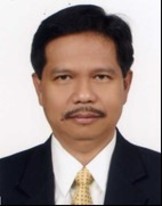 |
|
Dr Bassirou Bonfoh holds a DVM and a PhD in biology. He worked 5 years in West Africa as livestock development program coordinator for Vétérinaires Sans Frontières. He went for a 4 years epidemiology postdoctoral fellowship at Swiss Federal Institute of Technology Zurich and Swiss Tropical and Public Health Institute on health risks and determinants of dairy sector development. He led a research group on "Avenues of extensive pastoral production system" in the Horn Africa, West Africa and Central Asia in the framework of the Swiss National Competence in Research North-South (NCCR North-South) and contributed to the validation of the One Health concept on risk analysis and zoonosis control at the human, animal and environment interface (e.g. brucellosis in Kyrgyzstan). He is currently the West Africa regional coordinator of the NCCR North-South and the Director of the One Health Initiative consortium Afrique One "Ecosystem & Population health: expanding the frontiers in health" funded by the Wellcome Trust. He is a guest lecturer at University of Lomé (Togo), University of Abidjan (Côte d’Ivoire) and at the Pan African Veterinary School in Senegal, and member of scientific advisory boards of several agriculture and health research institutes and initiatives in Africa. |
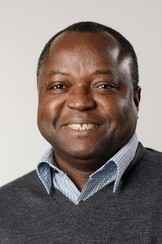 |
|
Nicoletta Buono holds a DVM degree from Milan University and MA from IUSS School in International Cooperation. She has been working in the Humanitarian and Development sector since 2001 with long missions in the Balkans, North Africa and the Greater Horn of Africa, both in conflict and post conflict context. Nicoletta joined VSF Germany in 2009, where she initially focused on Somalia and Kenya. Since 2013, she is coordinating the programme department in the capacity of Head of Programme based in the Regional Office in Nairobi. She has extensive experience in food security and livelihoods programming; in particular in animal health, livestock productions, rural development, resilience building, cash based interventions as well as emergency and complex emergency, recovery and LRRD interventions. She has been managing large and complex grant portfolios and consortia and has been deeply involved in coordination with the UN, international NGOs and community based organisation. |
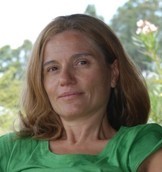 |
|
Dr Khwanchai Kreausukon graduated in Veterinary Medicine from Chulalongkorn University, Thailand in 1994 and subsequently worked as a veterinarian in a private dairy farm in Chiang Mai, Thailand for 3 years. In 1997 he started his academic career, focusing on dairy farm productivity, as a lecturer at the Department of Food Animals, Faculty of Veterinary Medicine, Chiang Mai University. He completed his Master’s degree from the Faculty of Veterinary Medicine, Swedish University of Agricultural Sciences, Uppsala, Sweden in 1999, and completed a German Doctorate at the Freie Universität Berlin in 2011. Dr Khwanchai was a director of the Veterinary Public Health Centre for Asia Pacific (VPHCAP) and also Associate Dean for Research during 2011-2014. His working experience has been expanded into the field of veterinary public health with his major interest on herd health management of dairy farms, participatory epidemiology, food safety and antimicrobial resistance. Since 2014, he is the Dean of Faculty of Veterinary Medicine, Chiang Mai University, Thailand. |
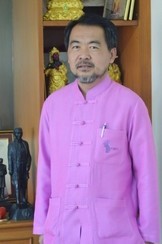 |
|
Dr Thierry Lefrancois is a French veterinarian with a PhD in physiopathology. He has been working for the last 20 years on immunology, diagnostic and epidemiology of tropical diseases in France, Burkina Faso, Kenya and Guadeloupe/Caribbean. His current research interests include emerging and vector borne diseases with a special interest in the development of tight interactions between research and surveillance within the frame of regional animal health network. He is currently working at CIRAD in Montpellier, France as the head of the joint research unit CIRAD-INRA “control of exotic and emerging animal disease” which encompass about 100 scientist, technicians and PhD students. This research unit is the OIE reference laboratory for PPR, CBPP/CPPP, and Heartwater and include researchers based in Montpellier, Guadeloupe (Caribbean), La Réunion Island (Indian Ocean), Morocco, Senegal and Ethiopia. |
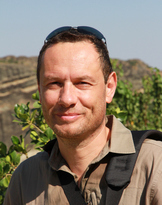 |
|
Marosi Molomo (Department of Livestock Services, Ministry of Agriculture and Food Security, Lesotho), graduated with a DVM from the University of Camagüey, Cuba in 1989 and obtained her MSc in Veterinary Epidemiology and Preventive Medicine from the Freie Universität Berlin in 1998. From 1990-1996, she was the District Veterinary Officer in Mafeteng District, and from 1998-2003 Senior Veterinary Officer. She headed the Epidemiology Unit in Maseru as Director in 2003 to 2004. Since 2004, she is the Director of Livestock Services. After a successful career both nationally and internationally, she represents Lesotho internationally as the World Organization for Animal Health (OIE) Delegate and the member of SADC Livestock Technical Committee. Dr Molomo was selected as Secretary, Vice President and finally President of the OIE Regional Commission for Africa between the year 2006 to 2015. She is the member of the Advisory Editorial Board of the OIE Scientific and Technical Review, member of OIE Animal Welfare Working Group and a writer of the “(2014) Drivers for Animal Welfare policies in Africa.” |
 |
|
Dr Jaap Wagenaar (Department of Infectious Diseases and Immunology, Faculty of Veterinary Medicine, Utrecht University, the Netherlands), is expert in the field of clinical microbiology with particular interest in zoonoses and antimicrobial resistance. He worked with WHO (Geneva, CH), Centers for Disease Control and Prevention (Atlanta, US) and the USDA (Albany, US). His research group is working on antimicrobial resistance and microbiological food safety. Dr. Wagenaar is Director of the WHO Collaborating Center for Campylobacter and the OIE Reference Laboratory for Campylobacteriosis. He has been member of several of the EFSA ad hoc groups of the EFSA Panel of Biological Hazards (BIOHAZ) amongst them the one that addressed MRSA. He currently coordinates the EFFORT against antimicrobial resistance research programme, an EU FP7 consortium of 20 partners from 10 European countries. |
 |
|
Dr Barbara Wieland leads the herd health team at ILRI and the Animal Health flagship of the CRP Livestock & Fish. She had broad experience in veterinary epidemiology research and in teaching at undergraduate and postgraduate level. Over the last 15 years she has worked on a variety of infectious diseases in different settings in Europe, African and Asia: African swine fever, Campylobacter, Brucellosis, Foot-and-Mouth disease, avian influenza, post-weaning multi-systemic wasting syndrome in pigs, porcine respiratory and reproductive syndrome, and other pig production diseases, peste des petits ruminants, and contagious pleuropneumonia in cattle and goats. Other research interests include motivation of farmers to control disease in their herds, improve productivity in herds, One Health approaches, and application of risk assessment and disease modelling techniques to identify the best possible control options for farmers and to inform policy. |
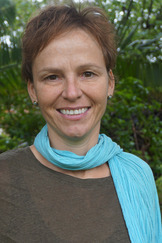 |
